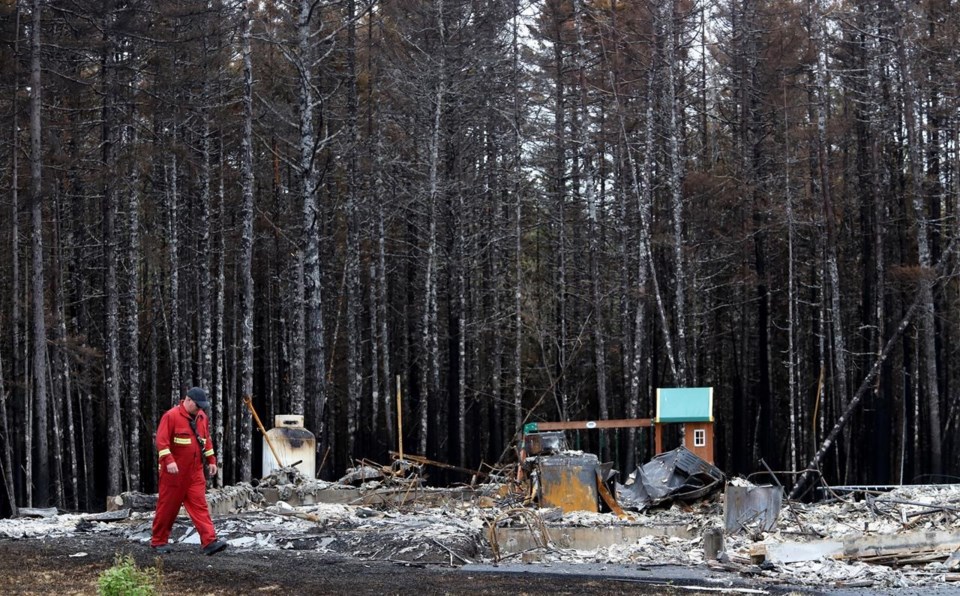HALIFAX — It could take years to rebuild hundreds of homes destroyed by unprecedented wildfires in Nova Scotia, a construction industry leader says.
Timelines for rebuilding depend on the size, style and location of a home, Justin Johnston, president of the Nova Scotia branch of the Canadian Home Builders’ Association, said in an interview Wednesday.
“It could be a lengthy journey to get back, for sure."
Initial structural assessments and environmental testing could take months to complete, he said. Then it could take up to three years to rebuild the homes because of existing backlogs in Nova Scotia's construction industry, with busy contractors more than a year behind schedule on some major projects, Johnston added.
Wildfires destroyed about 150 homes in the greater Halifax area and dozens more in Shelburne County, in the province's southwest.
Duncan Williams, president of the Construction Association of Nova Scotia, says supply chain snares and skilled labour shortages have contributed to the construction backlog and will “continue to have an impact” as people look to rebuild.
He is among the thousands of people displaced by the fires, currently living in a hotel after a wildfire broke out just a few hundred metres from his Halifax-area home. He lost a garage, a shed and some tools, but his house is still standing.
“Most of my neighbours and friends lost a hell of a lot more,” he said.
Those looking to rebuild their homes might struggle to find an available builder, Johnston said, and “then they have to go through the design process, which can take months and months and months" before a building permit can be issued.
Some people, however, aren’t giving up hope.
Glenn Taylor, who lost his Halifax-area home, says his family hopes to rebuild even if it takes years.
He recognizes the uphill battle he faces, as “there’s going to be lots of homes to rebuild.”
Taylor, along with his wife, Glenda, fled their Shelby Drive home with their two dogs, cat and pet bird after fires broke out on May 28. Thanks to friends in their close-knit church community, the Taylors have secured a place to live for a month and have “some irons in the fire” for a long-term place to stay until their home is rebuilt.
Danny Osborne, who lost his home in the nearby Yankeetown subdivision, intends to rebuild on the same street where all but a few houses burned.
In an interview earlier this week, he said he realized there would be a long wait for contractors, but he said he was determined to remain in the area and help restore his neighbourhood. “It’s a pretty strong little community there and I think we can help each other out … I think we’re going to be fine there,” he said.
However, he said his first challenge was to test his water quality and have environmental tests done to ensure the area isn’t contaminated.
The province has said modular homes could be a temporary housing solution to the thousands displaced by wildfires. Modular homes, also known as prefabricated homes, are built in factories and delivered via trucks.
Details about the location of the temporary homes haven’t yet been determined, Housing Minister John Lohr told reporters last week, adding that the province was “looking into logistics” as the homes would need to be hooked up to water and sewage systems.
But Johnston said the modular home industry has limited capacity, with only a few companies specializing in that type of home in the Halifax region.
“They’re busy as it stands,” he said, “the resources are limited. So it could be an option, but it could take some time.”
Nova Scotia’s vacancy rate is around one per cent, the second lowest in the country, according to the Canadian Mortgage and Housing Corporation.
This report by The Canadian Press was first published June 7, 2023.
Marlo Glass, The Canadian Press



